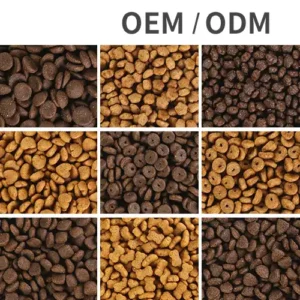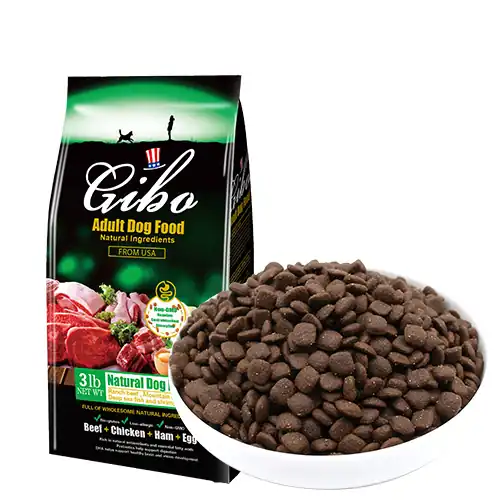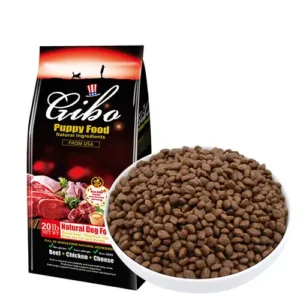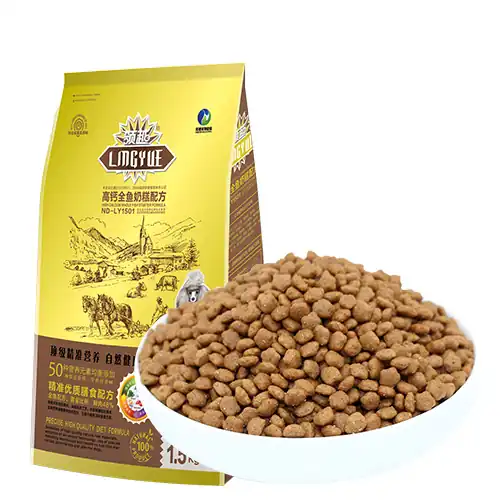Dogs and humans have different digestive systems. But like humans, we all suffer when our food is repetitive, boring and bland. If you want a happy dog with a strong, healthy body inside and out, the first step is to ensure a varied and well-balanced diet that contains plenty of tasty natural ingredients.
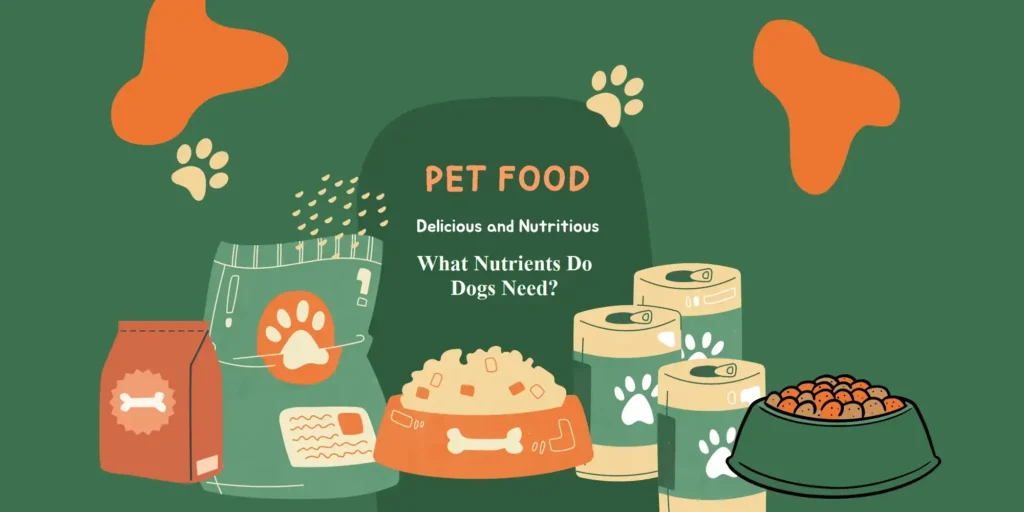
For starters, a dog’s diet should consist of the following foods:
Protein
Protein-rich foods, such as meat, fish or poultry, are important for your dog’s bodily functions, as protein contains amino acids that produce energy and form the building blocks of skin, nails, muscle and bone.
Carbohydrates
Carbohydrates are mainly used as a source of energy. They are not essential in a dog’s diet, but they help in the absorption of vitamins and minerals. Potatoes are an excellent source of carbohydrates for dogs.
Fats
Getting the right amount of the right fats and fatty acids is essential for your dog’s health. Salmon oil, for example, is rich in OMEGA fats, which ensure a healthy nervous system, protection of internal organs, and a healthy coat and skin.
Water
Dogs, like us, are about 70% water – and need to be hydrated regularly! Water regulates body temperature, flushes waste, transports nutrients to cells and digests food.
Vitamins and Minerals
Responsible for hundreds of dog health functions, from metabolism and immune building to cell production; vitamins and minerals are essential for a happy, well-functioning dog.
List of Vitamins and Minerals for Dogs

Here is a brief explanation of the benefits of each vitamin and mineral ……
Vitamin A
Often found in eye supplements, it is good for vision, growth, fetal development, cell function and immunity.
Vitamin B (Biotin, Folic Acid, Niacin, Pantothenic Acid, Riboflavin, Thiamin, B-6 and B-12 ……!)
B vitamins are generally responsible for internal functions such as energy regulation, enzyme function and metabolism. B-6 is particularly important because it is essential for various cellular, hormonal and immune processes.
Vitamin C
An important antioxidant that reduces inflammation and slows cognitive aging. Dogs produce their own vitamin C, but sometimes supplements can add an extra boost.
Vitamin D
Vitamin D is essential for bone production and muscle health and is known as the “sunshine vitamin”.
Vitamin E
Prevents cell degeneration in dogs, especially in the eyes and muscles, and helps with reproductive problems.
Vitamin K
Ensures your dog’s blood can clot.
Choline
Often used in dogs with epilepsy, choline ensures healthy brain and liver function.
Minerals for Dogs
Macronutrients
1. Calcium and phosphorus work together in the dog’s body to build healthy bones and teeth. Among other functions, calcium promotes a healthy nervous system.
2. Sodium, potassium and chloride are the three main electrolytes in the dog’s body and play a vital role in fluid balance.
3. magnesium is a multi-faceted mineral that plays an important role in building bones, enzymes and intracellular fluids.
4. Sulfur helps to minimize skin irritation in dogs, such as itchy, flaky or greasy skin.
Trace Elements
Although a trace element, iron is one of the “big dogs” of minerals and has many functions – notably carrying hemoglobin and oxygen around your dog’s body and strengthening their immune system.
Copper helps absorb iron into your dog’s body and also helps form skin, fur and connective tissue.
Zinc plays an important role in immunity – a deficiency could mean your dog is unable to protect themselves from infection.
Iodine helps your dog’s metabolism and thyroid hormone production.
Chromium helps with glucose absorption. Diabetic dogs need this mineral to feel the effects of insulin.
Manganese is responsible for many of the functions of manganese – it metabolizes proteins and carbohydrates into fatty acids, which help maintain the dog’s bones and joint cartilage and produce energy.
Selenium is an important mineral because of its antioxidant properties, which balance your dog’s metabolism.
Dog Food Nutrition: What to Look for on a Dog Food Label
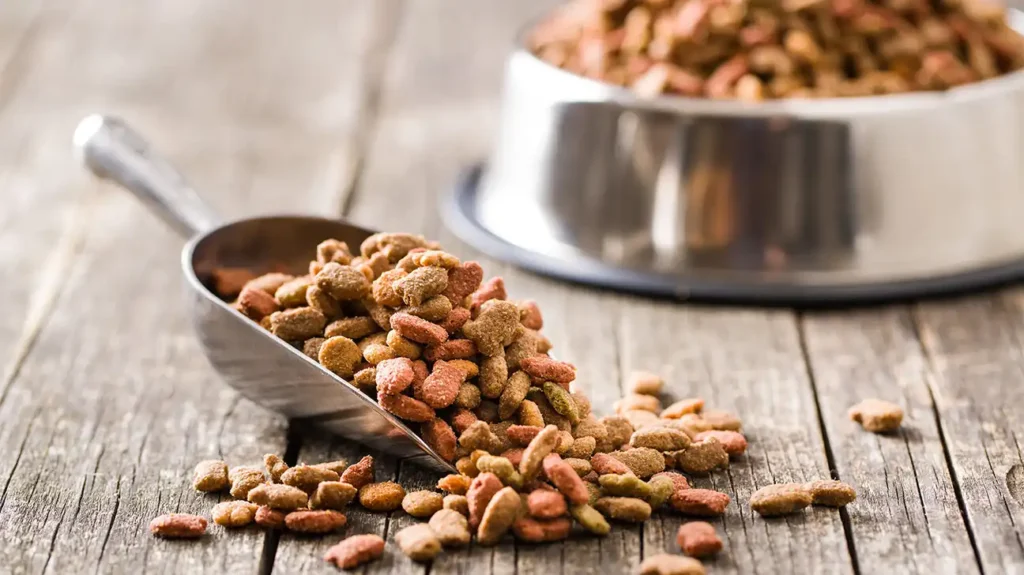
So now that you know what each food, vitamin and mineral does for your dog’s health, what should you look for on dog food labels?
We should avoid: phrases such as “beef flavored” or “made with animal derivatives”. This usually means that the food consists of things like organs, feathers and beaks rather than real muscle, which can upset a dog’s stomach. Aim to feed your dog the best possible source of protein.
Also items that mention sugar, grains or animal fats on the label are to be avoided.
“Artificial colors and flavors” are, of course, highly unnecessary, potentially dangerous and do not add nutritional value to your dog.
But we can choose:
✔ All natural ingredients, clearly labeled. You should be able to understand everything listed on the label – whole meat, fish or poultry, fruits and vegetables, vitamins and minerals.
✔ Fun fact: Healthy dog food or treats have more calories per gram than less healthy ones !!!!
Balanced and complete nutrition is the most important thing!

